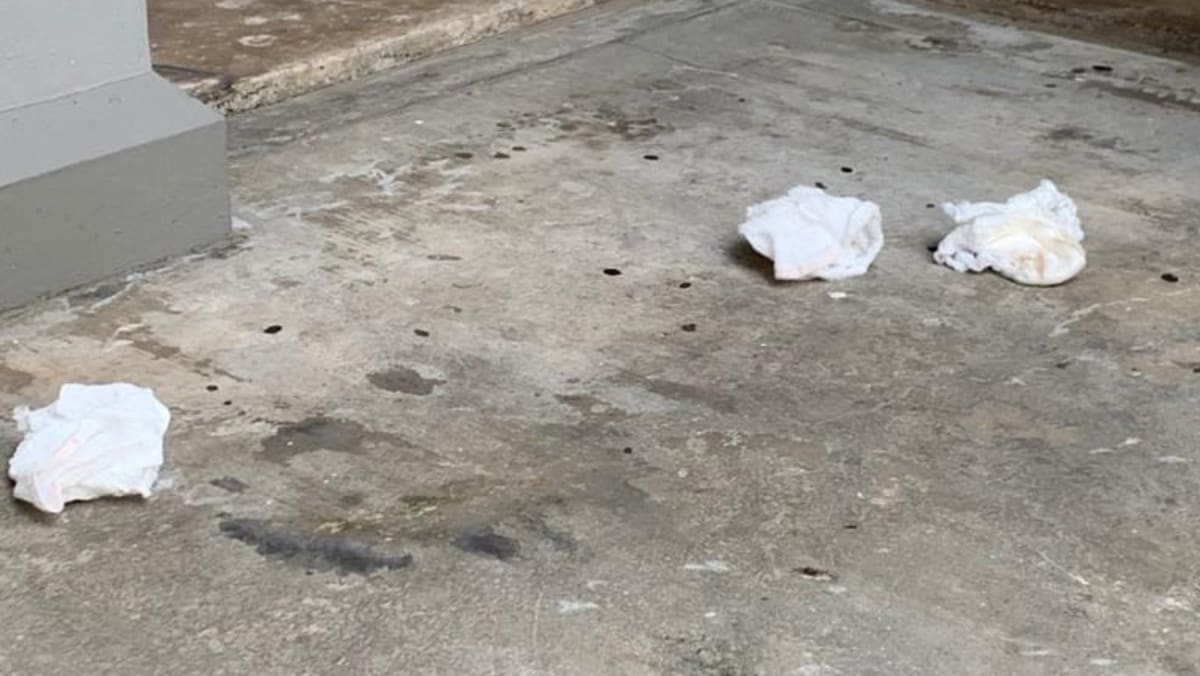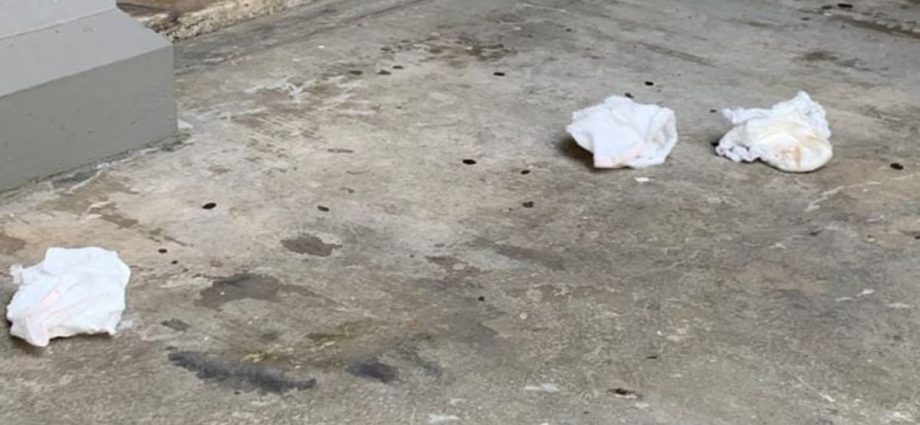
SINGAPORE: More high-rise litterers are set to be taken to task with new laws passed in Parliament on Monday (Feb 6).
Under the new amendments to the Environmental Public Health Act, the registered owner or tenant of a unit proven to be the source of high-rise littering will automatically be labelled as the offender.
The owner or tenant will then have to prove to the National Environment Agency (NEA) that they are not the offender within a stipulated period, or they will be subject to enforcement action.
The proposed amendments, including a new progressive wage model for the waste collection and materials recovery sectors, were passed on Monday, with 16 Members of Parliament rising to speak on the Bill.
In her opening speech, Senior Minister of State for Sustainability and the Environment Amy Khor said the policies will strengthen Singapore’s waste management and cleaning sectors.
“We must also take a firm stance against actions that create disamenities and endanger public health. Keeping our living environment clean has been, and will continue to remain a shared responsibility for all,” she added.
Here’s what you need to know about the changes made to the Environmental Public Health Act.
FLAT OWNERS OR TENANTS PRESUMED TO BE OFFENDERS OF HIGH-RISE LITTERING
The feedback on high-rise littering has increased by more than 60 per cent – there were an average of 19,000 cases from 2017 to 2019, and an average of 31,200 cases from 2020 to 2022, Dr Khor noted.
Under the new amendments, if there is clear evidence that proves that high-rise litter is coming from a residential flat, the owners or tenants will be presumed to have committed the offence.
The evidence would need to “clearly capture” the act of littering and the flat from where it was committed, said Dr Khor.
Images or footage from NEA’s enforcement cameras will be the main source of evidence, but evidence submitted by members of the public will also be accepted, subject to its quality.
Several MPs asked about the scope of the presumptions.
Dr Khor clarified in her closing speech that high-rise littering from common corridors and staircases will continue to be investigated based on the current approach.
Currently, NEA works with the relevant Town Councils to issue advisories to residents in the affected block when it receives feedback about high-rise littering. If the issue persists, surveillance cameras will be deployed to figure out which unit is responsible.
“Despite our best efforts, there are cases where NEA cannot identify the offender because all the occupants deny knowledge of the act,” said Dr Khor.
“This means that even with evidence that littering has been committed from a flat, NEA is unable to take enforcement action in such cases, which undermines deterrence.”
Under the new amendments, owners or tenants of private residential apartments may also be held liable if the high-rise litter lands in a public place.
But for high-rise littering within condominiums or private apartment estates, Management Corporation Strata Titles (MCSTs) can introduce and leverage by-laws to take appropriate action.
The amendments will take effect from Jul 1. Under the Act, a person convicted of a littering offence for the first time may be fined up to S$2,000.
Upon a second conviction, an offender may be fined up to S$4,000. Upon a third or subsequent conviction, an offender may be fined up to S$10,000. Offenders may also be given a Corrective Work Order (CWO) requiring them to clean public areas for up to 12 hours.
WHAT IF I’M NOT THE ONE LITTERING?
Under the amendments, NEA will send a letter to the owner or tenant via post to notify them of the offence and explain how they can rebut it. They will be given 14 days to respond.
Owners or tenants can respond to the initial letter and request for subsequent correspondence to be conducted over the phone or via email, Dr Khor noted in her closing speech on Monday.
They may also choose to appeal for more time to respond and NEA will consider the appeals on a case-by-case basis, she added.
In rebutting the allegations, there is no requirement to prove that they did not commit the high-rise littering act beyond reasonable doubt, said Dr Khor.
For example, owners or tenants can use purchase receipts or show transport trip transactions as proof that they were not at home. Alternatively, the owner or tenant can provide the identity of the person they believe to be the offender.
“Merely pointing the finger at another person without reasonable basis will not be acceptable,” said Dr Khor.
NEA will also exercise more care in investigating cases where young children or the elderly are involved, she added.
For littering acts committed by children below 12, NEA will not take enforcement action against them as they may not be mature enough to understand what they did. Instead, the agency will issue an advisory letter to their parents to underscore their responsibility in educating them.
For offenders with mental incapacities, cases will be referred to social welfare agencies to provide more holistic help.
If the high-rise littering cases are persistent, NEA may engage the households to implement measures to prevent further issues. This could include installing wire mesh on the windows, said Dr Khor.
“While we empathise with the families of offenders with mental incapacity, NEA may still proceed with prosecution for persistent cases with the Attorney-General’s Chambers concurrence, especially if the offender is aware of the nature and consequences of his or her actions and no effort is made to prevent recurrence,” she added.

